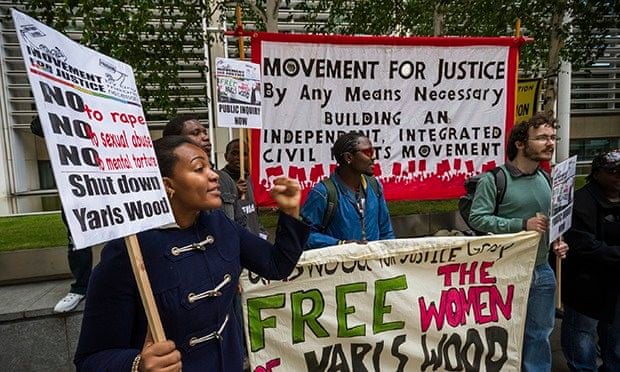
Maria Alyokhina and Nadezhda Tolokonnikova, members of Pussy Riot, walked out of prison today. This is good news, but it’s not freedom. Freedom does not exist where whole populations live in fear of State mandated, sponsored, or instigated terror. Gay and lesbian individuals and populations, from Moscow to Kampala, know this all too well. Ask Kasha Jacqueline Nabagesera about life in Uganda, and she will not talk about “freedom.” She will talk about the struggle for freedom, the long hard walk to a freedom dreamt of but not in sight. Ask those, like Alyokhina and Tolokonnikova, who suddenly leave prison if they feel “free.” They may feel joyful and relieved to be on the outside, however precariously, but they do not feel free. They remember too much.
President Obama recently “pardoned” and “commuted” a few sentences. He talked a little about the unfairness of some aspects of the so-called War on Drugs. He didn’t mention that he has the lowest pardon rate of any President in recent history. He didn’t mention the bodies piling up in prisons and jails across the country.
He certainly didn’t mention Karen Sandoval, originally from Honduras, who lives in constant fear and terror. He didn’t mention the terror of a rigid “immigration enforcement policy” that rips families and communities apart, that rends hearts and souls and sometimes minds, and, not incidentally, that targets women – as undocumented individuals, as those left to clean up and care for those, and in particular the children, `left behind’, and, when incarcerated, as those most vulnerable to sexual abuse and violence from staff.
In Spain, the conditions in immigration detention centers, in the notorious centros de internamiento de extranjeros, or CIEs, are infamously toxic. What’s the anwer? Build more! Put one on every corner. In Italy, the vicious conditions of immigration detention centers are so bad they have inspired prisoners to sew their lips shut, in protest. They say these are worse than prisons “or any other place”. In these prisons, “people … are treated like animals.”
None of this is new. We have seen the sewn lips before, and we have turned away. We have each time taken an oath to forget. That’s what amnesty is, that’s what amnesty was at its origin. Once a year, those who committed violence in the name of preservation of the democratic State, would gather, each year at the same time in the same place, and would take an oath to forget. That is why the State, from its earliest, feared the mothers in mourning, the mothers who refused to forget, who howled their remembrances in words and deeds.
Amnesty has never meant freedom. Ask those who remember.
(Photo Credit: CalvertJournal.com)
